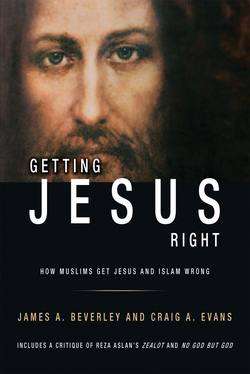Читать книгу Getting Jesus Right: How Muslims Get Jesus and Islam Wrong - James A Beverley - Страница 35
На сайте Литреса книга снята с продажи.
Jesus as Zealot
ОглавлениеOne of the earliest and most influential expressions of the idea that Jesus was a zealot appeared in the posthumous publication of parts of a manuscript by Hermann Samuel Reimarus (1694–1768). This work is often given credit for launching what became known as the “quest of the historical Jesus.” In the seventh installment, entitled On the Aim of Jesus and His Disciples and published in 1778,1 Reimarus suggested that Jesus and his disciples attempted to seize control of the temple precincts in Jerusalem and establish a new government. Jesus was defeated and executed; his disciples were initially scattered but later regrouped and invented the story of the resurrection in order to re-energize the movement. Almost no one followed Reimarus.
In 1929–30, German scholar Robert Eisler revived the zealot theory, relying heavily on Josephus and the dubious Old Slavonic version of Josephus’s Jewish Wars, in which are found a number of references to Jesus and his disciples.2 No scholars today think these references were part of Josephus’s original work. Rather, they are regarded as later insertions into the text in the early medieval period. As for Eisler’s work itself, it is regarded as eccentric at best. Some have described it as perverse.
In the 1950s and 1960s, the zealot hypothesis was reformulated, this time with a bit more nuance, by comparative religions scholar and World War II veteran S. G. F. Brandon of the University of Manchester in the United Kingdom.3 Like Eisler, Brandon argued that Jesus attempted to seize control of Jerusalem by force of arms. But his views gained no scholarly following.
In 1970, Martin Hengel, a well-known and respected professor of Christian origins at Tübingen University in Germany, published a brief but devastating critique of the zealot hypothesis.4 Today this hypothesis is advanced by no scholar with expertise in the field. When in 1985 E. P. Sanders published his highly regarded Jesus and Judaism, he could say, “Brandon’s view…will get no airing at all, since I consider that it has been sufficiently refuted,” and then in a footnote cites Hengel’s incisive study.5 No one objected to what Sanders said.
The point of all of this is that the zealot hypothesis has been laid to rest. Scholars may talk about political unrest and banditry in Israel in the time of Jesus and how that potentially clarifies some of the dynamics and dangers that Jesus and his followers faced,6 but they rightly recognize that Jesus himself was no zealot. This is why Reza Aslan’s recently published Zealot: The Life and Times of Jesus of Nazareth,7 which resurrects the zealot hypothesis, strikes us as odd and strangely dated.
Aslan’s version of the zealot hypothesis contains little that is new. Part of his interpretation rests upon the idea that the world of Jesus was one of zealotry, understood as a fervent nationalism that strongly desired an end of Roman and Herodian rule and the restoration of the Davidic royal dynasty. Aslan assumes that Jesus fits right into this picture, as one of dozens of wandering prophets and would-be Messiahs proclaiming the kingdom of God. To justify his classification of Jesus as a zealot, Aslan focuses on Jesus’ entry into Jerusalem and his demonstration in the temple precincts. Jesus’ actions were such that his disciples recalled the words of Psalm 69:9: “Zeal for thy house will consume me” (John 2:17). Aslan brushes aside learned scholarship that interprets this event very differently from the way he does as “centuries of exegetical acrobatics.”8 He does the same with the ancient sources themselves, dismissing the many passages in the Gospels that contradict the zealot hypothesis as “fanciful,” “absurd,” “fictional,” “ridiculous,” and “preposterous.” The closed-minded bias is hard to miss.
In the balance of this chapter, we shall briefly explore Jewish zealotry in the time of Jesus and then inquire into the aims and goals of Jesus and his disciples. Our purpose is to define the zeal of Jesus and interpret it in context. We shall see that at points Jesus is similar to some of his predecessors and contemporaries, but at many points Jesus is quite different. We begin with a review of the history of zealotry in Israel.
